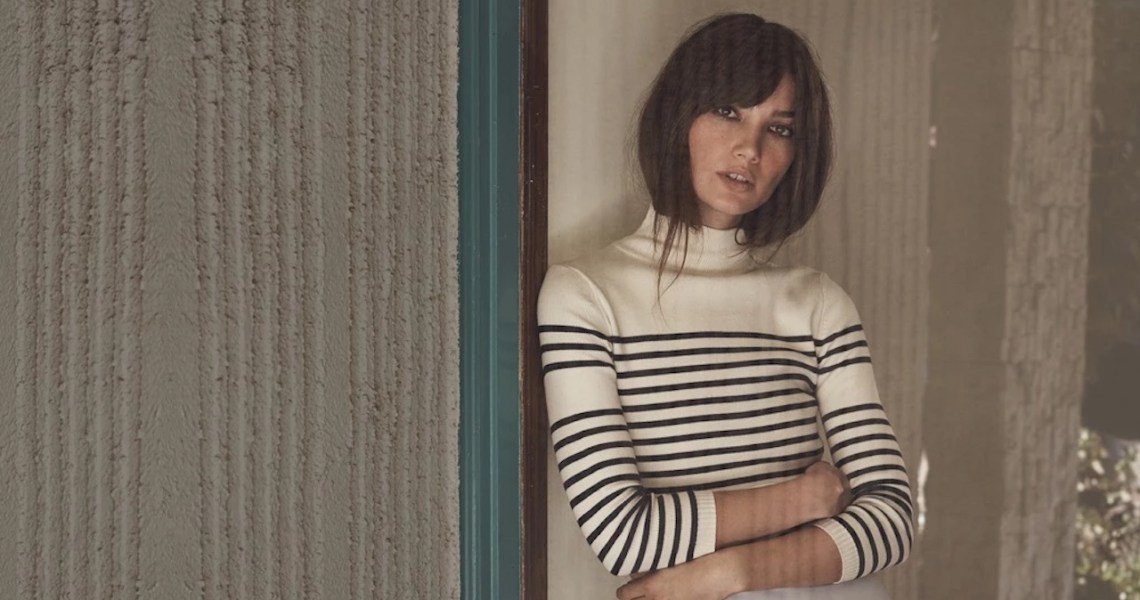The current strained retail environment has forced many DTC brands that normally avoid discounts at all costs to put products on sale. But to avoid diluting the brand or completely killing their margins, they’re offering sales on the sly. That includes hosting exclusive sales events and offering discounts only through influencers and boutique partners.
La Ligne, which rarely discounts outside of Cyber Monday and a single sample sale each year, is one example. Founder Molly Howard said the brand’s sample sales are normally operated and marketed by a third-party company, Sample Sale 360. La Ligne sends the company a portion of product from previous seasons and usually washes its hands of the whole affair. This year, that was different.
As soon as it became clear that in-store sales would be impossible for the foreseeable future, Howard asked her team to find a way to do a sample sale online. La Ligne developers created an entirely separate web page, inaccessible from the main La Ligne site, to preserve the feeling of exclusivity that’s typical of a normal sample sale. Customers could access the sale, which began late last week, through the brand’s emails andInstagram bio.
“We rarely discount and try to avoid it,” Howard said. “But as soon as this hit, all those rules when out the window. We went from worrying about margins to worrying only about cash flow. Our goal with this has been to keep cash flow coming, and it’s been really successful in doing that, without teaching our customers to expect regular discounts.”
With stores closed and fashion sales depressed, brands have been stuck with loads of inventory that they’re having trouble offloading. Sales can provide a way to get some immediate direct cash and disperse of inventory before it becomes unsellable.
The influx of cash has been such a value to La Ligne that it’s extended the sample sale’s length from one week to twoand added 50 more styles to the mix, including sweaters which are normally never put on sale even at samples. Howard declined to share exact figures, but said this year’s online sale has already sold four times as much as last year’s in-store sample sale.
Other brands are looking for ways to drive up sales without doing a standard promotion. Evelyn & Bobbie, a company that makes women’s underwear, is opposed to doing discounts on its online store, citing the harm it would bring to its boutique partners whose sales are already damaged by the coronavirus.
“Our sales have slowed to a near halt,” said Bree McKeen, CEO of Evelyn & Bobbie. “But small business owners need to stick together now more than ever. So we’re going to start providing a [20%] discount code for boutiques to share with their communities. It will allow customers to shop directly from our site, and a portion of those profits will be shared with our boutique partners.” McKeen declined to share boutiques’ cut.
Monique Morin, founder of an eponymous underwear brand, is relying on a more indirect path to driving up sales: influencer partners.
“We are not big on promotions. We lead with the idea that people should be more selective with their disposable income; buy less but better,” Morin said. “Our products are very fairly priced, considering the high-quality fabrics. That being said, we see the need to work harder to sell our lingerie at the moment, so our strategy has been to support our influencers better by offering a higher percentage discount on their promo codes. Freelancers, artists and bloggers are instrumental in creating awareness for our brand. They are taking a hard hit at the moment. We need to all work together and lift each other up.”
The exact discount the brand will offer through influencers is still being worked out. Influencers get a commission on sales when their discount is used.
Lele Sadoughi, founder of her eponymous accessories brand, said she’s seen success from informal, brief sales she’s been offering since Monday, Mar. 23. Every day, at first from 5:00 pm ET to 7:00 pm ET but later extended another hour, her company been hosting a happy hour on Instagram Live, during which it offers a single style for 50% off. Sadoughi said the brand saw six or seven times the amount of sales at the end of the first week as it did on the first day.
“We don’t do sales ever, except on Black Friday,” Sadoughi said.
Sadoughi said these are extraordinary times, and brands like hers need to get creative with how they drive sales.
“Brands are currently trying to stay afloat during this pandemic,” said Avery Faigen, retail analyst at Edited. “Discounting, which might not have originally been a strategy for some brands, may be the way they get through this trying time. And that does not necessarily mean a tarnished brand value in the long run.”




